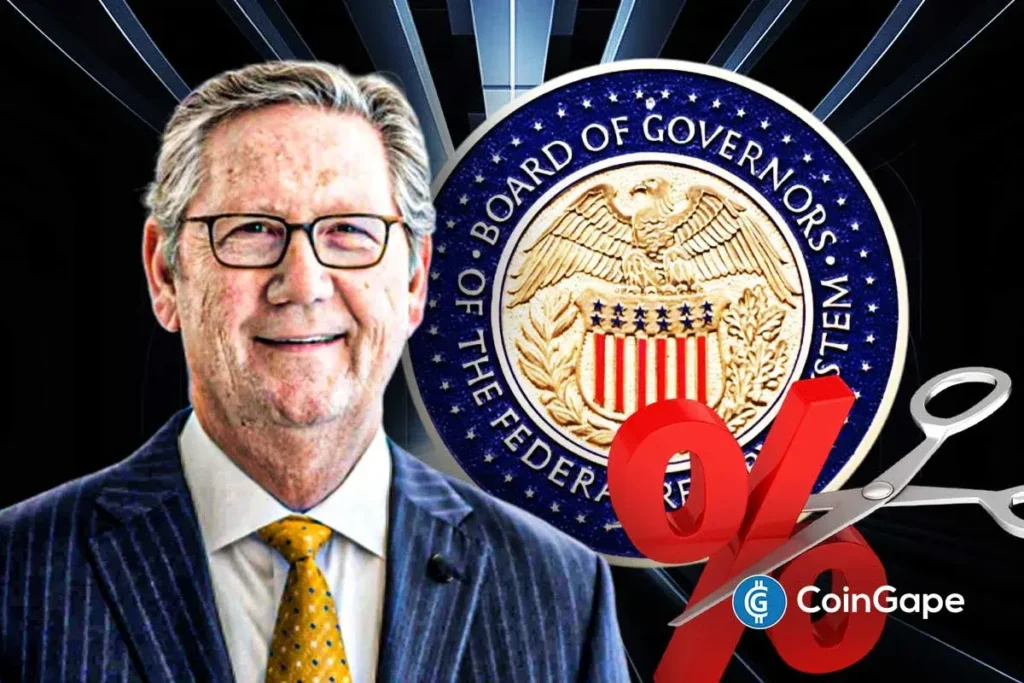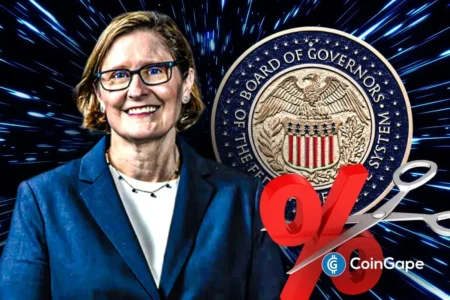Kansas City Fed President Jeffrey Schmid Expresses Concerns Over Further Rate Cuts Amid Rising Inflation
Kansas City Federal Reserve President Jeffrey Schmid has made it clear that he does not support further cuts to the Fed’s interest rates, citing concerns over escalating inflation. Schmid’s remarks come as market expectations indicate a potential 25 basis points (bps) rate cut at the upcoming Federal Open Market Committee (FOMC) meeting. This juxtaposition could have significant implications for various sectors, including the cryptocurrency market, as monetary policy shifts can influence asset prices.
Schmid’s Stance on Monetary Policy
During a recent address at a CFA Kansas City event, Schmid characterized the current monetary policy as "only slightly restrictive." He expressed that this stance is optimal given the existing economic environment. With inflation remaining elevated, Schmid advocates for a policy approach that restrains demand to provide enough capacity for supply to grow, ultimately helping to reduce prices. His caution extends to raising demand through further rate cuts, as such moves could dangerously escalate inflation rates.
A Cohesive Voice Among Fed Officials
Schmid’s stance aligns with sentiments expressed by other Federal Reserve officials, notably Dallas Fed President Lorie Logan. Logan has also urged caution regarding potential policy rate reductions, citing inflation risks as a prevailing concern. Both officials have conveyed that the Fed’s current monetary policy isn’t excessively restrictive and that maintaining this moderate approach is essential for constraining inflationary pressures.
The Inflation-Labor Market Dilemma
In a notable shift, Schmid suggested that the Fed may need to prioritize inflation control over labor market conditions. During the September FOMC meeting, he voted in favor of a 25-bps rate cut, deeming it a "risk-management strategy" to balance inflation and employment risks. However, he acknowledged that strategies aimed at bolstering the labor market could inadvertently contribute to higher inflation, complicating the Fed’s dual mandate.
The Credibility of the Federal Reserve
A crucial element of Schmid’s argument revolves around maintaining the Fed’s credibility in managing inflation. He hinted at a reluctance to endorse additional rate cuts in the immediate future, emphasizing that the Fed must strike a balance between combating inflation and fostering employment. Despite the current market expectations for further cuts, Schmid’s perspective challenges the notion that aggressive rate reductions are necessary in this economic climate.
Data-Dependent Decisions Amidst Uncertainty
Schmid’s approach to future policy adjustments will remain data-driven, pending the availability of crucial government data currently delayed by a government shutdown. He aims to closely monitor alternative indicators related to the labor market and pricing conditions leading up to the FOMC meeting scheduled for later this month. This careful consideration of data reflects a broader regulatory focus on informed decision-making in the face of fluctuating economic conditions.
Market Implications and Future Outlook
The potential for a 25-bps rate cut is currently assessed at 94.1% according to the CME FedWatch tool, indicating that many market participants expect such an adjustment to occur soon. Should the Fed proceed with this cut, it could have immediate repercussions across various financial sectors, including cryptocurrencies. However, Schmid’s explicit caution regarding inflation provides insight into the Fed’s ongoing commitment to maintaining price stability in an uncertain economic environment.
In summary, Jeffrey Schmid’s recent remarks encapsulate the Federal Reserve’s cautious approach to future rate cuts amidst rising inflation concerns. His focus on balancing inflation control with labor market dynamics emphasizes the complexities of monetary policy in an evolving economic landscape. As the Fed approaches its next meeting, the interplay of economic data and inflation trends will be crucial in shaping their policy decisions.
















